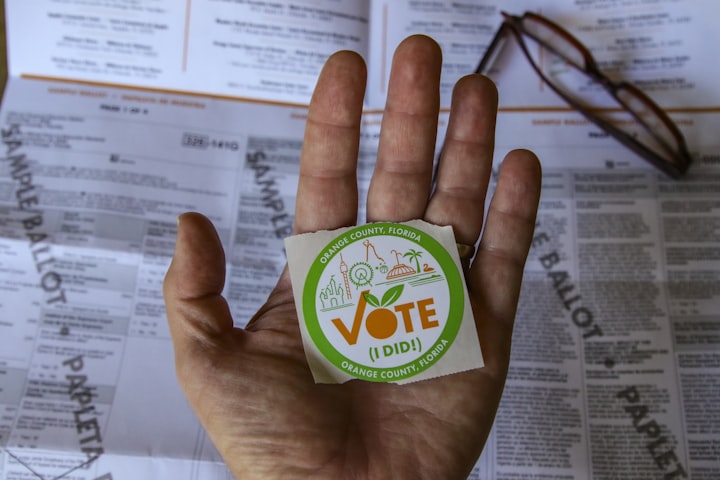A Vote Beyond Identification: Unmasking the Heart of Democracy"
In the bustling streets of England, anticipation fills the air as the local elections approach on May 4.

The question of voter identification is indeed a contentious issue that has been the subject of passionate debate in various countries, including England. The arguments surrounding voter identification typically revolve around the balance between ensuring the integrity of the electoral process and safeguarding the right to vote for all eligible citizens.
Proponents of voter identification argue that it is essential to prevent voter fraud and maintain the credibility of elections. They argue that requiring voters to present identification at polling stations helps verify their eligibility, prevents impersonation, and ensures that each vote is cast by a legitimate voter. This perspective emphasizes the need for a secure and trustworthy electoral system.
On the other side of the debate, opponents of strict voter identification laws express concerns about potential voter suppression and the impact on marginalized communities. They argue that such laws disproportionately affect certain groups, including the elderly, low-income individuals, and minority communities, who may face difficulties in obtaining the required identification documents. Critics argue that these laws can create barriers to voting and undermine the principle of equal access to the ballot box, thus compromising the democratic ideal of universal suffrage.
The debate often extends to discussions about the prevalence and impact of voter fraud. Critics of strict identification laws contend that instances of in-person voter fraud, which the laws primarily aim to address, are relatively rare and do not warrant the potentially discriminatory effects of such measures. They assert that existing safeguards, such as voter registration systems and signature verification, are sufficient to prevent significant instances of fraud.
Supporters of voter identification laws counter by highlighting the importance of maintaining public confidence in the electoral process. They argue that even if instances of voter fraud are relatively rare, the perception of fraud can undermine public trust in the fairness and legitimacy of elections. They contend that requiring identification is a reasonable and necessary measure to enhance public confidence and protect the integrity of the democratic system.
As the debate unfolds, it is crucial for policymakers to consider the potential impact of voter identification laws on different segments of society and to ensure that any measures implemented strike a balance between safeguarding electoral integrity and protecting the rights and access to vote of all eligible citizens.
On a crisp autumn morning, the small town of Oakville buzzed with anticipation as its residents prepared to cast their votes in the local election. The air crackled with a mix of excitement, hope, and nervousness. For many, it was more than just an election; it was an opportunity for change and progress.
Mary, a lifelong resident of Oakville, had seen her beloved town face numerous challenges over the years. Dilapidated infrastructure, limited job opportunities, and a struggling local economy weighed heavily on her heart. She longed for a leader who would listen to the people and bring about positive transformation.
As she made her way to the polling station, Mary's mind raced with thoughts of the future. She hoped that this election would mark a turning point for Oakville, a chance for its residents to reclaim their dreams and build a thriving community.
Inside the polling station, Mary joined a line of eager voters. As she waited, she struck up conversations with her fellow townspeople. The atmosphere was electric, filled with discussions about the candidates and their promises.
In the midst of the bustling crowd, Mary noticed an elderly gentleman named George. He had been a pillar of the community for as long as she could remember. George, with his warm smile and kind eyes, had always been there to lend a helping hand or offer wise advice. His presence was a source of comfort to many.
Curiosity piqued, Mary approached George and asked if he had already cast his vote. With a gentle nod, George revealed that he had voted for a candidate who embodied honesty, integrity, and a deep understanding of the town's needs.
As they chatted, George shared stories of Oakville's past, recounting the times when the town flourished under compassionate leaders who prioritized the well-being of their constituents. His voice quivered with emotion as he reminisced about the sense of unity and community that had once defined Oakville.
Moved by his words, Mary felt a renewed sense of purpose. She realized that this election was not just about her hopes and dreams; it was about preserving the legacy of those who had built Oakville into what it was today. She knew that she had a responsibility to honor the past while shaping the future.
With renewed determination, Mary stepped up to the voting booth. As she marked her choice on the ballot, she felt a surge of optimism course through her veins. The weight of her decision was immense, for she understood that the outcome of this election would impact not only her life but also the lives of her fellow townspeople.
Days turned into weeks as the votes were counted and the results were announced. Mary's heart pounded as she listened to the final tallies. The candidate she had supported, the one who had promised to revitalize Oakville, emerged as the victor. A wave of jubilation swept through the town, as if a collective sigh of relief echoed through the streets.
In the months and years that followed, Mary witnessed a remarkable transformation in her beloved town. The newly elected leader worked tirelessly to address the pressing issues that had plagued Oakville for far too long. Roads were repaired, businesses thrived, and new opportunities began to flourish.
But beyond the tangible changes, there was something even more significant happening in Oakville. The spirit of community was rekindled, with neighbors coming together to support one another, celebrate successes, and overcome challenges. People began to believe in the power of their voices and the impact they could make when united.
Mary often thought back to that local election day, when hope had coursed through her veins, and she had realized the profound influence each vote held. It was a reminder that change was not just a distant dream; it was something she and her fellow townspeople had the power to create.
As she looked out
About the Creator
Jennifer P. Ditch
Jennifer Peter Ditch is an American woman with a life that’s unlike any other. She’s lived in all kinds of places - from her home state of California to England, Germany and beyond. She loves learning new cultures and languages.





Comments
There are no comments for this story
Be the first to respond and start the conversation.